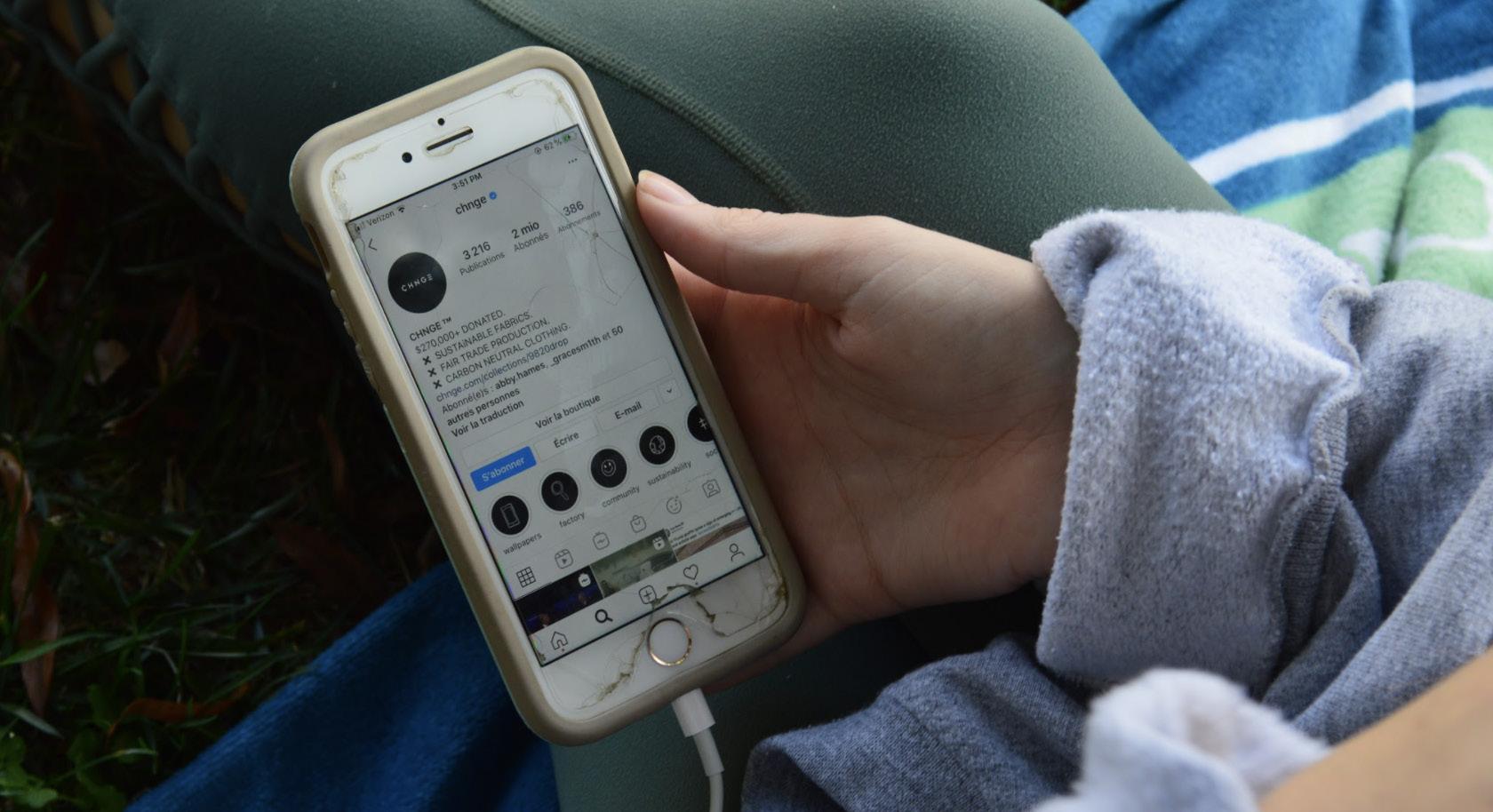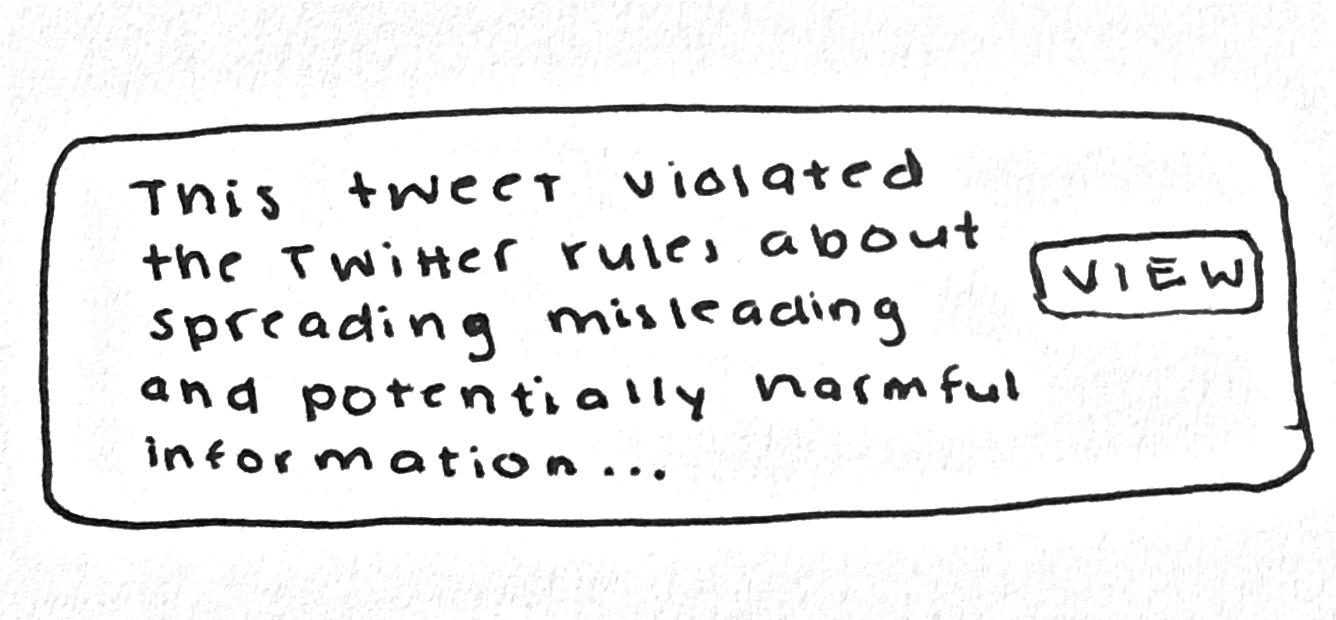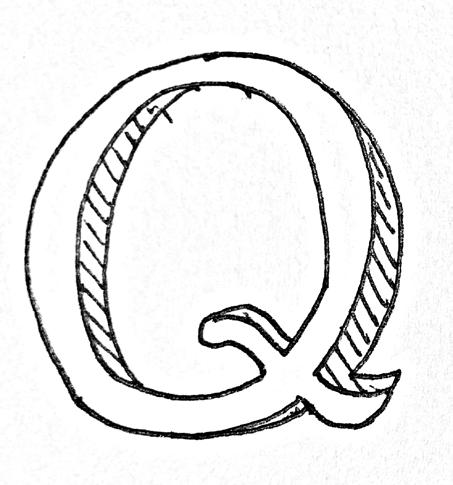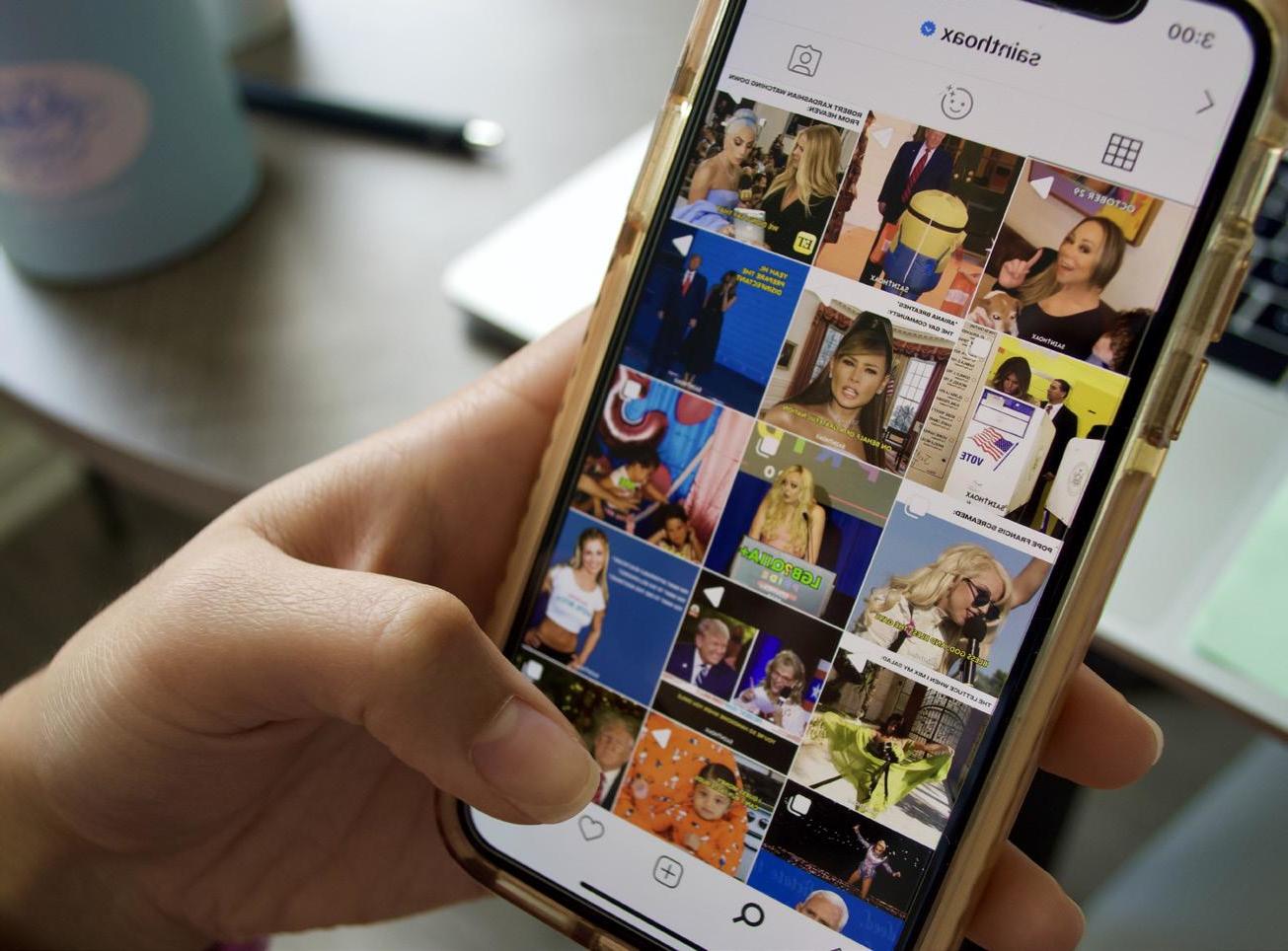
9 minute read
SOCIAL MEDIA: The New Political Mo(ve)ment
by HCAmerican
Riddhi Setty
Doodles by Noël Sedona James
Advertisement
Odds are, the first thing you did this morning as you rolled over in bed half-asleep was fumble around for your phone. Maybe you spent a few minutes scrolling through Instagram or got in a couple extra TikToks that you couldn’t fit into your nightly binge. It’s even more likely that while you were engaging with your morning dose of social media, you came across a story where someone posted a strong statement about the latest political happening. Perhaps you saw the same post shared on multiple accounts. You might have even reshared it yourself. If this experience sounds familiar to you, welcome to the world of social media activism. Social media has changed the way we communicate and consume content, especially during a time where we’re primarily dependent on the internet to maintain our connection to the outside world. When we have a president with triggerhappy Twitter fingers and citizens and media alike jumping up to either defend his every word or attack it, there is no doubt that the conversation has shifted from what we see on our television screens and hear in the news to the colossal world behind those little icons we hold in the palm of our hands.

Jordyn Habib
Our world hasn’t always been able to condense to our phones. Leonard Steinhorn, a CBS news political analyst and professor at American remembers voting in his first election, which took place when he was twenty years old and a junior in college. “ I remember very well what it was like, knocking on people’s doors, who basically just close the door on you, and I would knock again. And I would say, Hey, I’m just here for the same reason you care, which is all about democracy and wanting to have a conversation. It’s funny, when you actually go to people with that sort of sincere approach, they are willing to open up and talk.” These days however, our conversations look rather different. Especially as of late, we see social media being utilized as a platform for people to voice their political opinions or echo those of others. You might see something you agree with or a political meme that you find amusing and repost it to your story in hopes of spreading the message to your followers. But is social media activism a movement or a moment?

This summer, when the Black Lives Matter movement was at its peak, many took to social media to offer their support for the movement by reposting organizations and encouraging their peers to donate to them, speaking of the importance of the movement, and calling for justice for the murders of George Floyd and Breonna Taylor, among others. If you look at your feed today however, these calls to action seem markedly absent even though neither the movement nor the fight for equality are anywhere close to dissolving. This begs the question, were they ever really attempting to make a difference or just jumping on the bandwagon, afraid to miss out, or worse, be judged for not participating in the latest “trend”?
And this is far from the first time. We all remember the ALS Icebucket challenge. Though the campaign was successful in raising over $220 million dollars, far from the future of fundraising, the ice bucket challenge itself was a one-time internet craze that has faded from the memories of most. While there is definitely evidence that the challenge spread awareness as well as brought in necessary funding to make a difference, there is also ample evidence that there were many who dumped a bucket of ice-water over their heads not fully understanding the significance of the cause but simply wanting to be a part of a viral movement.
Steinhorn describes today’s virtual era as an amplification of his experiences growing up at a time when everything was political, from the way you dressed to the music you listened to. He does however add that there is a key distinction between the two. “We had far fewer sources of information, far less access,” he explained. “ typically, you waited for the local news and the evening news if you wanted to find out information. And much of America was watching the evening news in those days, so you had more time to process it. There wasn’t this constant stimulation that you have.” He went on to say despite the circumstances this was “perhaps less stressful, even though we were facing a war where you could have been sent off with no control of your life… in some ways it was even less anxiety producing than it is now because, you know, we weren’t being constantly stimulated.”
There is no denying the power of social media, should one know how to yield it properly. The Trump campaign’s engagement with Facebook deserves a large portion of the credit in determining the outcome of the 2016 election in ways that we are still trying to fully understand even four years down the line. This election cycle, both campaigns tried to maximize their outreach via social media. The Biden campaign called upon celebrities and influencers such as Cardi B and Keke Palmer to have virtual conversations with the democratic candidate and even created an entire Animal Crossing Island in his support.
With the boons of social media however come the banes, specifically in the form of misinformation. A word that is a rampant label and accusation on Twitter, Facebook and Instagram these days, the threat of misinformation is unfortunately one that is becoming increasingly difficult to combat. Putting the president’s cries of fake news aside, social media has become the new battleground for information warfare.
Amidst issues of external interference in our politics via social media and misinformation spread not just by malicious campaigns on conspiracy theorists such as QAnon, but also prominent political personalities such as President Trump who suggested voting twice to make sure your vote counts--an illegal move that could lead to your ballot being discounted-- it is no wonder that the American people are skeptical of what they see on social media. About two-thirds of Americans (64%) say social media have a mostly negative effect on the way things are going in the country today, according to a Pew Research Center survey of U.S. adults conducted in July of this year. Though prominent platforms such as Twitter and Facebook are attempting to actively combat misinformation, it seems they are dealing with an ever-growing monster of their own creation that they are unable to reign in nearly as quickly as it expands.
Chances are that you’ve either seen the flagged tweets on Twitter or perhaps even been not only a victim but also a perpetrator of misinformation. When you share a post to your Instagram story, how often do you check to make sure the information in it is accurate? Did that post that you shared which claimed to donate to a bail fund every time someone reshared really hold up their promise? Or was it simply an easy way for them to gain traction on their account? If you don’t know the answer, it’s fairly possible that you might have unknowingly been responsible for spreading misinformation. Because it is such an easy mistake to make, with motives often as simple as wanting to contribute to making a difference, curbing the spread seems to be a mammoth challenge.


Jordyn Habib
So where does all of this leave social media activism? Is there any room or even hope for it in our current political climate? According to Kyla Blazer, a member for Settle for Biden, the answer is yes. Kyla recounted her experiences with the positive impact of social media through Settle for Biden saying, “Settle for Biden is a social media account - we started out at 1000 followers. We’ve been able to make national waves and have been interviewed by top reporters. I think that social media can make a change but it’s just the beginning. It’s about having conversations, volunteering, donating, doing things that make a difference. Social media allows us to connect.” She did however caution against the dangers of surface-level social media activism, warning, “It shouldn’t just be performative. It’s about the combination of activism and conventional social media.”
Kyla isn’t alone in thinking that social media activism has an important role to play. Chloe Li, a journalism major at American, acknowledged the acts of performative activism but explained that she sees room for more. “Most of the people who are just doing social media activism can do more but it’s uncomfortable to do more. However, I think social media activism does have a place, especially for those who are disabled” she said. “On the streets activism and social media activism and even journalism and community activism are all different sects of what we can be doing but the fact that the people who should be doing other things are putting all their energy into social media activism to the point where it takes away from people who can only do social media activism is harmful.”
According to Steinhorn, though social media cannot be a replacement for the personal engagement that himself has not only witnessed but taken part in, this does not mean that it is without a place in our political sphere. “Social media needs to be seen not as an end in itself, but as a means to an end, to facilitate no different from what the mimeograph, the ditto machine, the telephone tree, or even letters being sent to people were years ago. And I think the mistake people make is seeing it as an end, on its own, not as a medium.” He believes that “if people focus more on it as a medium, as many already have, I think it would enhance its value in terms of what it could contribute to organizing and activism, and politics. And we wouldn’t fall prey to some of the downsides.”
Despite the potential dangers of navigating this relatively new field of activism, the responsibility falls on the shoulders of those who use it the most - our generation, to be cognizant of the power that resides in the click of a button. This means thinking twice before we reshare and asking ourselves “is that all I can do to make a difference?” I think that you’ll find that there is much more to be done outside the realm of social media before real change can happen.


Jordyn Habib










